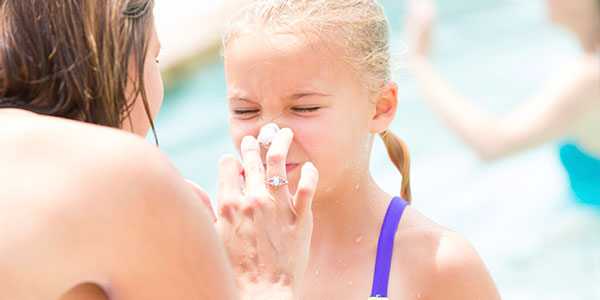Some of the best childhood activities take place outdoors: swimming, camping, playing in the park or building sandcastles on the beach. As children get ready for outdoor fun, parents need to remember to protect their kids’ skin from the sun.
Amy Gilliam, M.D., pediatric dermatologist at the Palo Alto Medical Foundation, answers commonly asked questions about children’s skin care.










